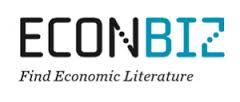Infla-trade Effect on Inflow of Foreign Capital
DOI:
https://doi.org/10.26703/jct.v12i1.118Keywords:
Foreign Capital, Inflation, FDIAbstract
FDI assumes a great significance in both developed and developing countries because of its immense potential to address the gap between the desired investment and the required savings. Along with this, its role in channelising the inflow of technology and technical know-how, managerial and organisational capabilities etc. is undisputed. So there has been a competition among the countries to create the appropriate environment so as to attract more FDI into their economies. This requires identifying the factors which attracts FDI inflow into the country like adequate infrastructure, governance policies, exchange rate, convertibility criteria, inflation, volume of trade etc. This paper analyses the role of Market size, inflation and trade openness in accelerating the inflow of FDI into the country along with analysing the combined inflation effect and trade openness effect in channelising the inflow of this vital form of foreign capital. Market size and inflation were found not to be significant in influencing the inflow of FDI into the country. Volume of trade and Trade openness was found to be highly significant at 5%.Also 'infla-trade', was found to be significantly influencing FDI inflow. The market size and volume of trade has positive effect while the FDI is negatively affected by inflation and the combined effect of inflation and volume of trade i.e., 'infla-trade'. Again while the marginal effect of inflation is found to be stable in the pre-reform period and increasing after reform, marginal effect of the volume of trade shows wide fluctuations.
Downloads
Metrics
References
Ada, Ojoko Emmanuael, Adejumo Oyeronke, Adekanye James Odunayo, Victor Olesegun (2014): Trade Openness and Inflation in Nigerian Economy: A Vector Error Correction Model (VECM) Approach, Research Journal of Finance and Accounting, Vol.5 (21), pp. 74-85. .
Adhikary, Bishnu Kumar (2011): FDI, Trade-openness, capital formation and Economic growth in Bangladesh: A Linkage Analysis, International Journal of Business and Management, vol.6 (1), pp. 16-23.
Antwi, George Owusu, James Antwi and Peter K.Poku (2013): International Business and Economic Research Journal, vol.12, No.5, pp.573-584.
Bibi, Sadia (2014): Impact of Trade Openness, FDI, Exchange Rate and Inflation on Economic Growth: A Case Study of Pakistan, International Journal of Accounting and Financial Reporting, vol.4, No.2, pp.236-257.
Hanif, M.N and Irem Batool (2006): Openness and Inflation: A case study of Pakistan, MPRA paper, no. 10214: 1-8.
Intelligence Report, 2016 at current affairs.gktoday.in/current-affairs/fdi.
Jin, Jang C (2006): Openness, Growth and Inflation: Evidence from South Korea before the Economic Crisis, at http://faculty.washington.edu/karyiu/confer/Gjob/papers/jin.pdf, pp.1-35.
Kenani, Mwakanemela (2014): Impact of FDI Inflows, Trade Openness and Inflation on the Manufacturing Export Performance of Tanzania: An Economic Study, International Journal of Academic Research in economics and Management Services, vol.3 (5), pp.151-165.
Miskinis, Algirdas and Iima Juozenaite (2015): A Comparative Analysis of Foreign Direct Investment Factors, Economika, vol. 94(2), pp.7-27.
Omankhanlen, Alex Ehimare(2011):The effect of Exchange Rate and Inflation on Foreign Direct Investment and its Relationship with Economic Growth in Nigeria, Business Intelligence Journal, vol.4, No.2, pp 4-16.
Sepehrivand,Aram and Jabar Aziza(2016): The Effect of Trade openness on Inflation in D-8 member countries with an emphasis on Romer Theory, Asian Journal of Economic Modelling,vol.4(4),pp.162-167.

Downloads
Published
How to Cite
Issue
Section
License
Copyright (c) 2017 Dr. Swapnamoyee P. Patil

This work is licensed under a Creative Commons Attribution 4.0 International License.














